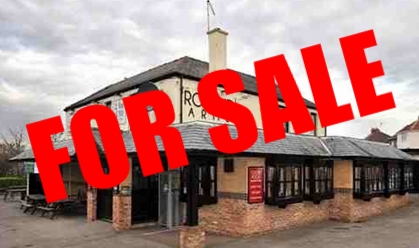If you’re reading this article then you’ve probably already decided you want to operate your own pub, but are possibly wondering where to start?
The good news is there are always plenty of good pub opportunities owing to the constant changes in the pub market. Despite the fall in the number of pubs in recent years, there were still close to 50,000 public houses in the UK in 2013 and The Campaign for Real Ale (CAMRA) have predicted that more than 1,000 new pubs will open in the coming year, with many of these taking over long closed down pubs.
This guide will take you through the process of buying a pub, from where to find pubs for sale, how to identify the right opportunity for you and how to choose the running arrangement.
Do You Have What It Takes?
This is the first question you have to ask yourself. The pub trade remains of the most popular choice of business for budding entrepreneurs, however for many people running a pub can be physically and emotionally demanding with extremely long hours. Despite this, the social nature of the business can also make the role of publican highly rewarding role as for many people one becomes the social hub of the local community. Before you take the plunge you really need to decide whether you are cut out to be a pub landlord.
Previous experience of working behind a bar or pub, although not essential, will be very useful. Being a social, outgoing person is also very important as the pub landlord will have to maintain a high level of customer service and communication. You need to be well versed in licensing law as well as food hygiene and health & safety. The British Institute of Innkeeping (BII) offer courses across the UK for new and existing landlords. The National Landlord’s Association (NLA) also offers a foundation course for new landlords to develop their professional skills.
Location, Location, Location…
As with buying a house, acquiring a pub business is a matter of location above all other considerations, there are three main types of pub for you to consider, each with their own challenges and opportunities:
- Country Pub: the ideal lifestyle choice for many, you will have ensure that your pub is seen as a destination for punters as often they will have to travel by car. These type of premises are also more dependent on ‘dry’ (food) income.
- Suburban Pub: this type of pub is far more community orientated, relying on passing trade often from local residential housing estates.
- City Pub: these pubs often take a different type of character from the previous two.
It’s a good idea to spend time in pubs speaking to landlords about their public houses and observing how the business operates. You should then be able to have a greater understanding of the type of pub which would suit your character and desired lifestyle. Once you’ve decided on the type of pub that suits you, assess the competition in the area and identify ways in which you could improve upon their current operations.
Leased Houses, Tenancies and Freehouses
There are three type of running arrangement to choose from. The type of arrangement you choose will very much depend on your current situation in terms of capital and how committed you are to the lifestyle.
Lease
Leases are generally suited to the more experienced pub operator or people that have been involved in hospitality management. Beer ties are common, although there could be some flexibility for locally brewed ale. Leases range anywhere between from 10 to 25 years and returns on investment can be achieved. From an investment perspective, prices range from £50,000 to £250,000. Amongst the leading leased pub opportunities are Enterprise Inns, Punch Taverns, Admiral Taverns and Greene King.
Tenancy
Tenancies are by far the most common and easiest way to get started in the pub trade, especially if you have little prior experience. The tenancy tends to last for 3 years, therefore giving you the opportunity to have a go at running a pub without any serious long term commitment. In terms on investment, you will typically require between £15,000 and £50,000. Within the purchase price you will acquire the fixtures, fittings and stock. The inflexibility of this arrangement lies in the obligation to buy beer and related products from the landlord. For more details on how to apply for a pub tenancy view our advice.
Freehouse
Freeholds tend to attract the real entrepreneurs in the pub trade. You take all the responsibility from owning the pub to choosing suppliers and buying fixtures. These opportunities tend to be found with specialist business transfer agents such as Intelligent Business Transfer agents that list freehold pubs for sale. From an investment perspective, you are looking at anything from £60,000 to £1.5 million.
Conclusion
Running a pub can be an extremely rewarding occupation, despite the challenges that exist in the industry. With the right approach and by conducting adequate research (such as this website) beforehand, operating a pub can provide a very good income.
